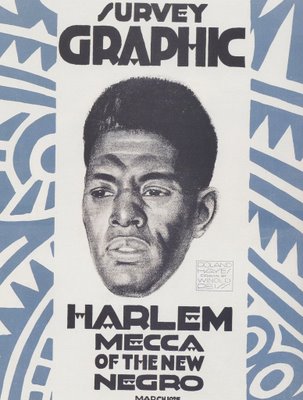WINOLD REISS

Winold Reiss was a German art student who painted in the Viennese style and came to America to meet American Indians but ended up in Harlem where he gained fame designing nightclubs and drawing portraits of black celebrities of the day. Are you following this so far?

Even if you are familiar with Reiss' work, you probably haven't seen his best efforts because they lie in storage at the National Portrait Gallery in Washington DC and rarely see the light of day. You can find some of his Indian portraits (yes, Reiss eventually made it to Montana) on a web site started by Reiss' family. But the books and magazines Reiss illustrated are out of print and it is difficult to find quality reproductions of his work. Here is a close up:

I think Reiss' Harlem work is strikingly beautiful. On the following portrait, you can tell from Reiss' signature way down in the corner that Reiss intended every single square inch of that white space.


The following pictures are examples of how Reiss combined his formal art training, the bold geometric patterns of the decorative arts movements in Germany and Vienna, and African American culture.

Survey Graphic was an important journal at the time of the Harlem Renaissance.

Reiss designed this bold interior for the "Congo Room" at the Hotel Almanac.


Historians tell us that the most important ingredient for a Renaissance is an openness to new ideas and external traditions. For example, the Great Renaissance which began in 14th century Europe resulted from the new cross fertilization of biblical traditions, classical Greek philosophical traditions, and Islamic influences.
In this same spirit, Reiss was receptive to a cross section of strong cultures and he helped create the style of the Harlem Renaissance. It demonstrates the value of keeping your mind and eyes open.
Reiss could not have melded these different cultures together without his powerful sense of design serving as the universal glue.


